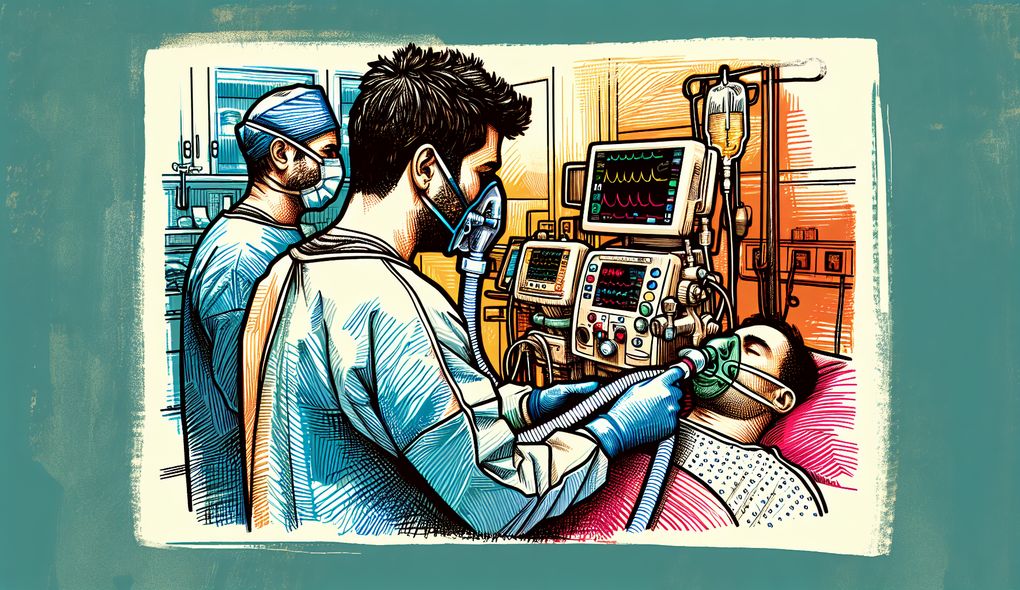Can you provide an example of a time when you had to make a difficult decision in your role as a respiratory therapist?
INTERMEDIATE LEVEL

Sample answer to the question:
Yes, I can provide an example of a time when I had to make a difficult decision in my role as a respiratory therapist. There was a patient who had a severe asthma attack and was not responding well to the usual treatments. It was a critical situation, and I had to consult with my team to come up with a decision. We decided to administer a more aggressive form of treatment, including high-dose steroids and bronchodilators. It was a difficult decision because it involved potential risks, but we closely monitored the patient's condition and adjusted the treatment accordingly. Ultimately, the decision paid off, and the patient's condition improved significantly.
Here is a more solid answer:
Certainly! Let me share an example of a difficult decision I had to make as a respiratory therapist. I had a patient who required intubation due to acute respiratory failure. However, the patient had a complex medical history and was on multiple medications that could potentially interact with the sedatives used during intubation. This presented a challenge in ensuring the patient's safety and optimizing their care. To make an informed decision, I collaborated with the ICU team, including the attending physician and pharmacist. We thoroughly reviewed the patient's medical records, consulted with specialists, and conducted a risk-benefit analysis. After careful consideration, we decided to proceed with intubation while closely monitoring the patient's vital signs and medication reactions. The decision was successful, and the patient was able to receive the necessary respiratory support without any complications.
Why is this a more solid answer?
The solid answer provides a more comprehensive example of a difficult decision made by the candidate in their role as a respiratory therapist. It includes specific details about the patient's condition, collaboration with the healthcare team, and risk assessment. It addresses most of the evaluation areas mentioned in the job description. However, it could further emphasize continuous education and adherence to safety standards.
An example of a exceptional answer:
Absolutely! I can share a particularly challenging situation where I had to make a difficult decision as a respiratory therapist. I was working in the neonatal unit, and there was an infant with a severe respiratory distress syndrome. The baby required immediate intubation and mechanical ventilation. However, the parents were concerned about the potential side effects and long-term consequences of intubation. The decision-making process involved not only my clinical expertise but also active communication and collaboration with the parents. I took the time to explain the risks, benefits, and alternatives available. We discussed the latest research studies and outcomes related to similar cases. After extensive discussions and providing emotional support, the parents agreed to proceed with the recommended treatment. Throughout the process, I ensured continuous monitoring, frequent communication with the parents, and adjustments in the ventilation settings based on the infant's condition. The decision was difficult, but it resulted in improved respiratory function for the baby and relieved the anxiety of the parents.
Why is this an exceptional answer?
The exceptional answer showcases the candidate's ability to handle a complex and sensitive situation involving collaboration with parents in the neonatal unit. It includes specific details about the decision-making process, effective communication, and continuous monitoring. It also highlights the candidate's exceptional skills in patient advocacy and emotional support, which are essential for the role of a respiratory therapist in a neonatal setting.
How to prepare for this question:
- Reflect on challenging cases and decisions you've made as a respiratory therapist.
- Think about how you collaborated with the healthcare team and other stakeholders in difficult situations.
- Consider the importance of patient education, safety standards, and continuous learning in respiratory therapy.
- Practice explaining complex medical concepts to non-medical individuals to showcase effective communication skills.
- Be prepared to discuss your ability to handle emotionally challenging situations with empathy and compassion.
What are interviewers evaluating with this question?
- Clinical skills in respiratory care
- Problem-solving skills
- Ability to work independently and as part of a team
- Collaboration with other healthcare professionals
- Monitoring patient's condition and adjusting treatment
- Adhering to safety standards
- Continuous education

